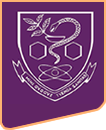Departments
Food and Experimental Nutrition Department
The Food and Experimental Nutrition Department (FBA) is involved in the formation of human resources, relatively to graduation and post-graduation, as well as in the generation of services and knowledge in the chemistry, biochemistry, microbiology, analysis, food and nutrition quality control and supervision areas. The Department has two post-graduation programs: Food Science, with two concentrations areas: Bromatology and Experimental Nutrition, with the highest CAPES concept (7), and the Applied Human Nutrition Interunits Program (PRONUT), which also involves the Faculty of Public Health; and Faculty of Economics, Administration and Accountancy. The Department also does intense research on the physical, chemical, biochemical, microbiological aspects applied to food and nutrition biochemistry. The FBA is the headquarters of the “Support Center for Research on Food and Nutrition,” which brings together 11 USP units and aims to strengthen the skills to develop innovative multidisciplinary research projects aimed at solving problems related to food and human nutrition (www.usp.br/napan). It is also headquarters of the Food Research Center (FORC) of the new Centers of FAPESP’s Innovation and Diffusion Research, which aims in addressing global challenges in the food and nutrition area and to develop fundamental, strategic and applied research, benefiting the agribusiness, consumers, and also the policy makers and regulators agencies.
Clinical and Toxicological Analyses Department
The Department of Clinical Chemistry and Toxicology (FBC) as two Graduate Programs: Clinical Chemistry and Toxicology. The aim of these Programs is to provide the Faculty and researchers in Health Sciences with resources. Physiopathology and Biotechnology, as well as the main areas of Toxicology, are our main focus. The Department of Clinical Chemistry and Toxicology has two Graduate Programs: Clinical Chemistry and Toxicology. The aim of these Programs is to provide the Faculty and researchers in Health Sciences with resources. Physiopathology and Biotechnology, as well as the main areas of Toxicology, are our main focus.
Pharmacy Department
The Pharmacy Department (FBF) is composed of the drugs and medicines area, as well as cosmetics and biomaterials, maintaining a close relationship to society. The Department’s professors develop graduation and post-graduation research and extension activities. Because of its linked to the industry’s vocation, its partnerships are with public and private companies in the fields of medicines and cosmetics, developing joint research projects. It also participates in state and federal health agencies activities. The Postgraduation Program in Drugs and Medicines offered by the FBF has Masters and Doctorates in Pharmaceutical inputs and Pharmacists Production and Control areas. The alumni come from different regions of the country and abroad, particularly in Latin America. Once graduated, they act especially in teaching, being the center of research groups in their institutions of origin. A significant part of the program’s post-graduation alumni develops activities in the pharmaceutical or cosmetics industry, often occupying positions of prominence. Furthermore, masters and PhDs graduated under the Program play enhancement roles in health agencies. The CONFAR, Laboratory of Medicament, Cosmetics, Sanitary Products and Respective Raw materials Control, develops extension activity in partnership with public and private companies. The FARMUSP, USP’s University Drugstore, is a Pharmaceutical Assistance Integrated Model for the State of São Paulo. Through ongoing therapy and Medicine Information Centre, the CIM represents a Pharmaceutical Assistance Pole of the State of São Paulo and in line with the new federal law, considers the pharmacy as a health facility.
Biochemical-Pharmaceutical Technology Department
This Biochemical-Pharmaceutical Technology Department (FBT) develops teaching, service and research activities in processes and pharmaceutical products development, including pharmaceuticals, biopharmaceuticals, food, diagnostic products and others, that can be obtained by chemical or biotechnological process. With this goal, the department invests in graduation and post-graduation education, in order to prepare its alumni to work in research and / or teaching, whether in the academic or industry area, providing products, processes developing and management aspects involved in pharmaceutical manufacturing formation. In the Department’s work the innovation aspects in pharmaceutical and food inputs are highlighted, or the obtaining processes of these products, which are often a result of the work’s development. These are presentations to the scientific community through publications in specialized magazines, as well as through presentations at national and international scientific meetings in the area. They can also be transferred to the productive section, when knowledge is generated as a result of cooperation with this section. Aligned with these goals, professors are encouraged to develop their research involving scientific initiation, masters, doctoral and postdoctoral alumni, aiming to continue teaching, scientific and technological improvement, as well as highly qualified personnel formation.
Last update 17/10/2017 às 17h52
